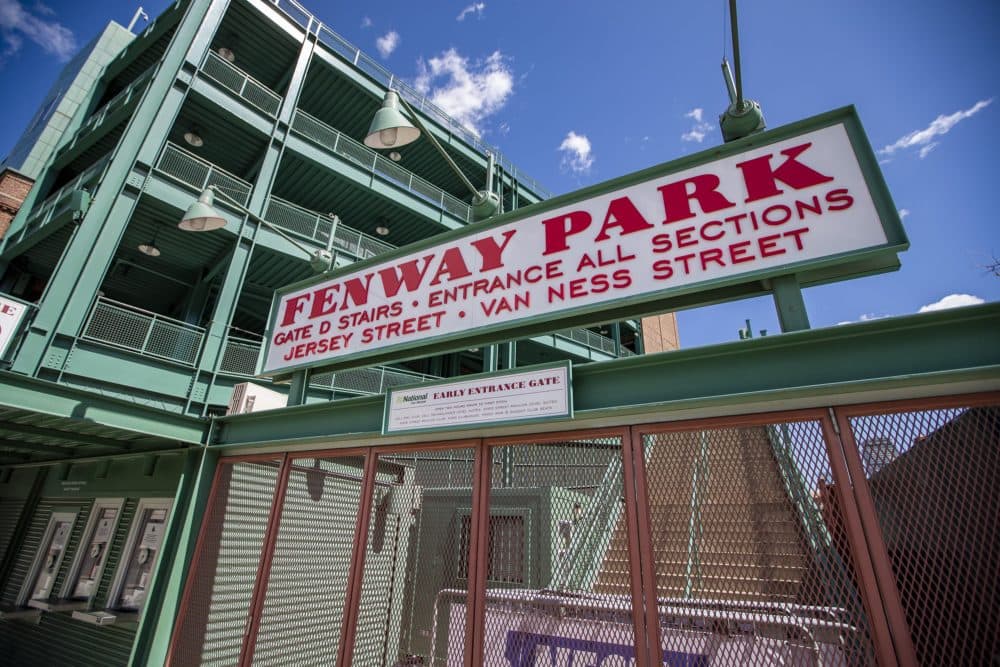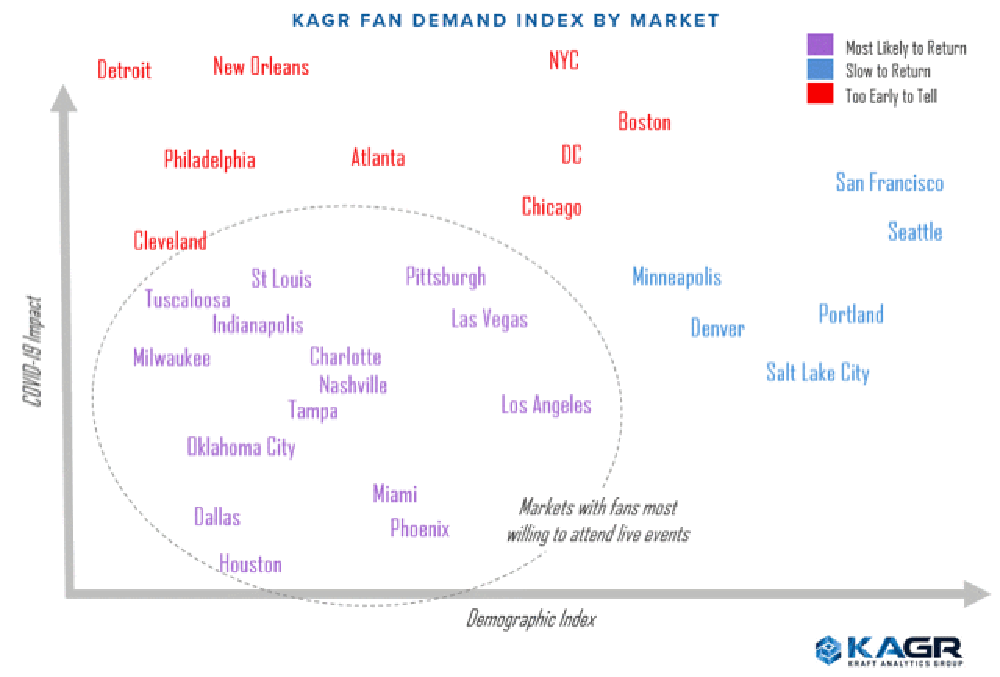Advertisement
Coronavirus Coverage
Will Fans Want To Fill Stadiums When They Reopen? Boston Sports Analytics Firm Looks For Answers

When professional sports return, it will be in empty stadiums. And it's uncertain when fans will be allowed back in big numbers.
Also, uncertain? Whether fans will flock to Fenway Park or TD Garden or Gillette Stadium when they reopen to the public.
Now, amid the coronavirus pandemic, the Kraft Analytics Group (KAGR) is trying to figure out what fan demand will be like in the future. KAGR is a Foxboro-based sports analytics firm that uses data to predict fan behavior, and works with pro leagues and teams.
"Will fans come?" asked KAGR CEO Jessica Gelman. "What are the fears that they have? These are the big questions that the sports and live events industry is trying to answer.
"Certainly our data doesn't suggest that everyone's going to come back at once. But there's a lot of people who will come back, especially if the right safety measures and precautions are in place."
Five weeks ago, KAGR started collecting publicly available data from 30 sports markets and web scraping sports-specific information, then analyzing it. (KAGR was spun off four years ago from Kraft Sports and Entertainment, which includes the New England Patriots, New England Revolution and Gillette Stadium. All three of those are among KAGR's clients, as well as the NFL and multiple NBA teams.)
The data collected for every market includes a combination of unemployment numbers and business closures, the percentage of the local population that's tested positive for COVID-19 and the local government's response, historical sports attendance figures and venue experience surveys.
KAGR found that cities like Dallas, Indianapolis and Pittsburgh have fans who are most willing to attend live events. Houston is the top-ranked major city with fans likely to return the fastest.
Meanwhile, the metrics indicate that fans in San Francisco, Seattle and Denver will be slow to return.
Advertisement
And what about Boston? It's too early to tell.
Cities in the "too early to tell" category have been hardest hit by the coronavirus. New York City, Washington, D.C., Detroit and New Orleans fall into the same group. A lot will depend on how those cities and their governments respond to the virus in the weeks and months ahead.

In Boston, there are other factors to consider as well.
"The sportsgoing population is older and, obviously, they have more risk," said Gelman. "But, secondly, the younger population, even though they could go out, they stayed home. They were not as mobile. That's really critical because it indicates to us that they're more cautious."
For Boston, the historical attendance data included how quickly fans returned to Fenway Park after the 2013 Boston Marathon bombings. Attendance dropped 13% in April, right after the bombings, then rebounded in May. It was largely unaffected for the remainder of the season.
With COVID-19, Gelman said KAGR is also tracking how visible teams have been on social media and how they've helped the communities where they play.
"Fans want to feel a connection with their team," said Gelman. "If the team is investing in the community, the fans will repay that commitment and show up."
According to Gelman, the combination of the different data sources employed by KAGR is more accurate than fan surveys. Also, KAGR plans to update its findings regularly, taking into account how quickly circumstances change during the pandemic.
"I've been working in this industry for almost 20 years," said Gelman, "and, honestly, we want people to feel safe and we want to learn ourselves."
And all indications are that the sports industry wants the same as it plans for a new normal at games.
This article was originally published on May 20, 2020.
This segment aired on May 21, 2020.
